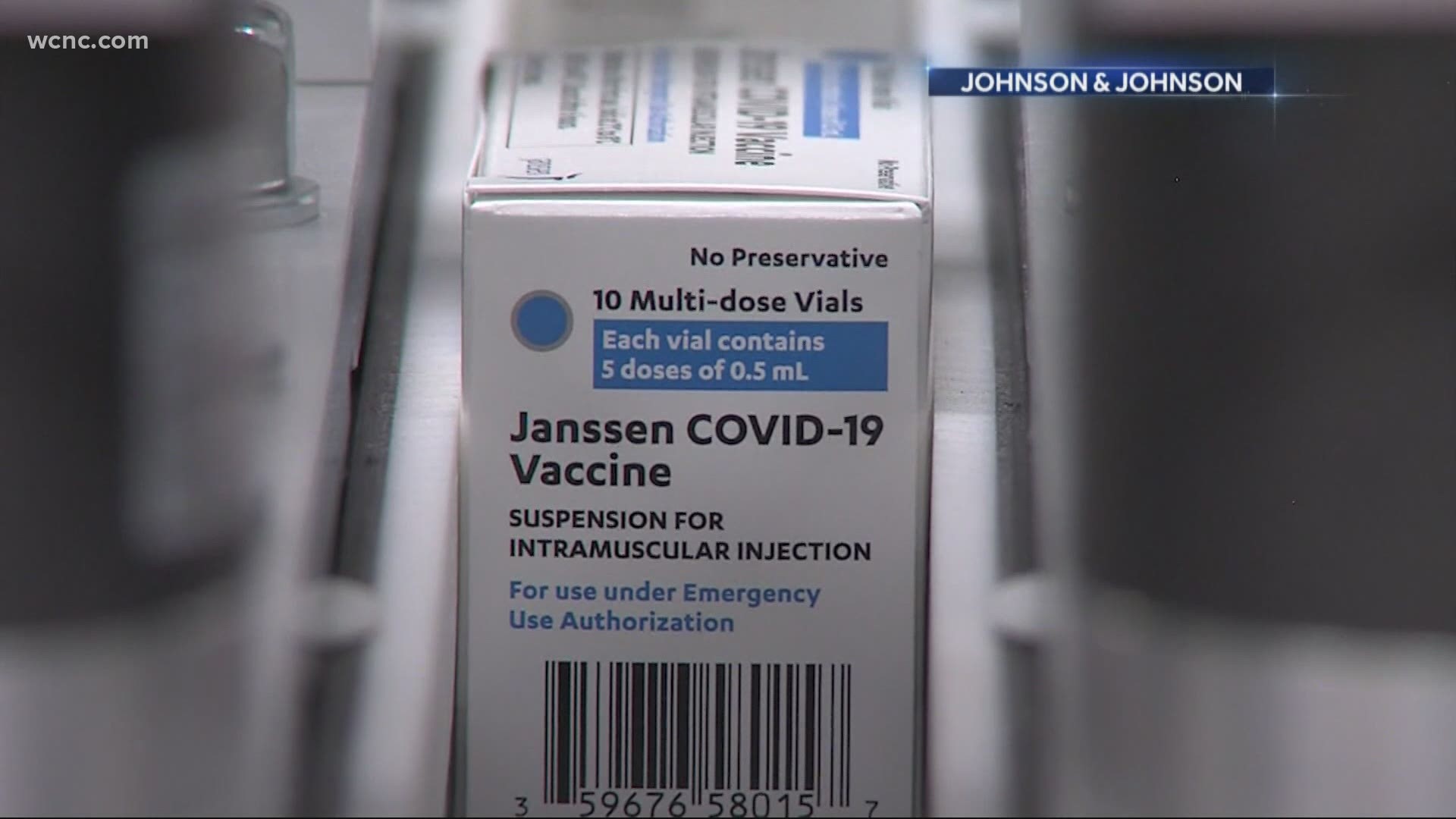CHARLOTTE, N.C. — Vaccine providers have already been touting some of the logistical benefits of the Johnson and Johnson COVID-19 vaccine. It only requires one dose, rather than two. It's also less stringent in storage and handling requirements than the other available vaccines, opening the door for wider distribution and better access in harder-to-reach areas.
However, it's possible the vaccine fills another gap, and it could be for those with allergy-related discouragement against the Pfizer and Moderna vaccines.
While reports of life-threatening allergic reactions to Pfizer and Moderna's vaccines are very rare –a handful of cases for every million shots given–the Centers for Disease Control and Prevention is considering allowing Johnson and Johnson for people who cannot get the other vaccines.
The CDC is still in the process of updating its vaccine guidance to account for the FDA's emergency approval of Johnson and Johnson, but documents show people who are advised to not get the mRNA COVID-19 vaccines, like Pfizer and Moderna, or have an allergic reaction to their first mRNA shot and cannot get the second one, could still be considered for Johnson and Johnson, after doctor consultation.
While health experts note that more research is needed, initial data shows promise on that front.
"I think it creates some additional opportunity for individuals who may have been more concerned about the other vaccines with the history of anaphylaxis," Rebecca Bean, Novant Health's Chief Pharmacy Officer, said.
According to Johnson and Johnson's FDA briefing document, out of 40,000 clinical trial participants, severe allergic reactions, like anaphylaxis, were not reported.
The document said these reactions "have not been identified as a safety issue in the broader safety dataset" for the type of vaccine Johnson and Johnson is.
"The Moderna and Pfizer, with the mRNA technology, it uses mRNA wrapped in lipid particles, and there is thought that some of the allergic reactions may be due to those lipid particles. The Johnson and Johnson vaccine doesn't have that," Dr. Meg Sullivan, Mecklenburg County's Public Health Medical Director, said.
According to the CDC, Johnson and Johnson's vaccine contains polysorbate, which is a slightly different allergic concern than the other vaccines. The CDC warns one of the main allergic worries for Pfizer and Moderna shots is polyethylene glycol (PEG). PEG, while structurally related to polysorbate, is not included in Johnson and Johnson's vaccines.
The guidance the CDC is considering states that people who have a contraindication and are not advised to have an mRNA COVID-19 vaccine might still be able to get Johnson and Johnson after doctor consultation, and vice versa.
Since no vaccines are without allergic risks, vaccine providers should still screen people for their risk level beforehand and observe them after shots.
The CDC said providers should monitor patients for at least 15 minutes after vaccination but up to 30 minutes for those who have a history of allergic reactions.

